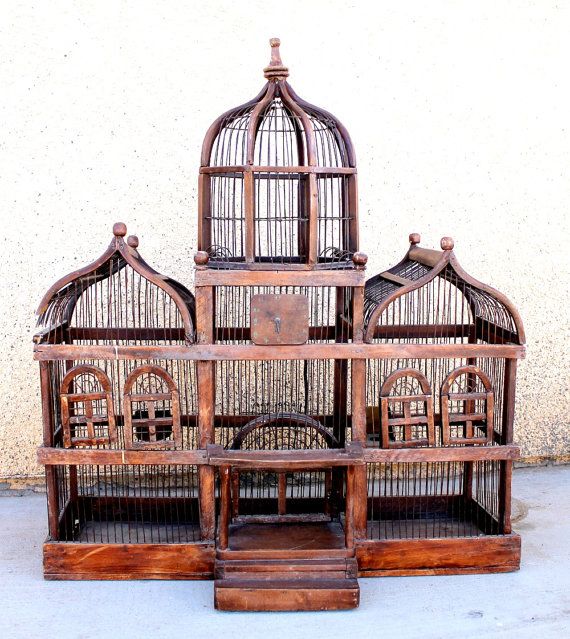FWP:
The affinity of kamaa;N and kamii;N goes beyond sound effects to their similar roles: in the former a deadly arrow lies in wait; in the latter, a deadly hunter. These affinities have also been cleverly emphasized by the semantic and metrical parallelism of the two halves of the first line.
In the second line, the lover is clearly (speaking as) a bird; for other examples when he does so, see {126,5}. Wild birds are hunted in the forest, and the beloved is well-known to be a a Hunter. Once captured, however, the bird has nothing more to fear. He claims to find ease and peace in the cage-- and not just in the cage, but huddled down in a single 'corner' of it; or else cherishing its 'seclusion' (see the definition above).
The reading of this straightforward-looking verse will depend almost entirely on tone. Is the bird despairing, and speaking with bleak irony? Is he rueful, and pointing out the complexities of his fate? Is he perhaps even at peace, having come to terms with his destiny? Is he a mystical or Sufistic bird, who can experience infinite expanses of spiritual progress within the smallest physical scope, so that he finds the corner of the cage a very suitable hermitage? Or is he a helpless victim whose spirit has been broken, trembling with fear and glad of a secure refuge like the corner of the cage? Needless to say, Ghalib leaves us to decide all this for ourselves.
For another verse about the desirability (or otherwise) of
living in a confined space, see {138,1}.
And for other bird-in-cage reflections, see {234,6} amd {383x,5}.

Hali:
That is, the person who is in a state of anonymity and neglect has no enemy or evil-wisher; these evils are associated with fame and esteem and reputation.
==Urdu text: Yadgar-e Ghalib, p. 166